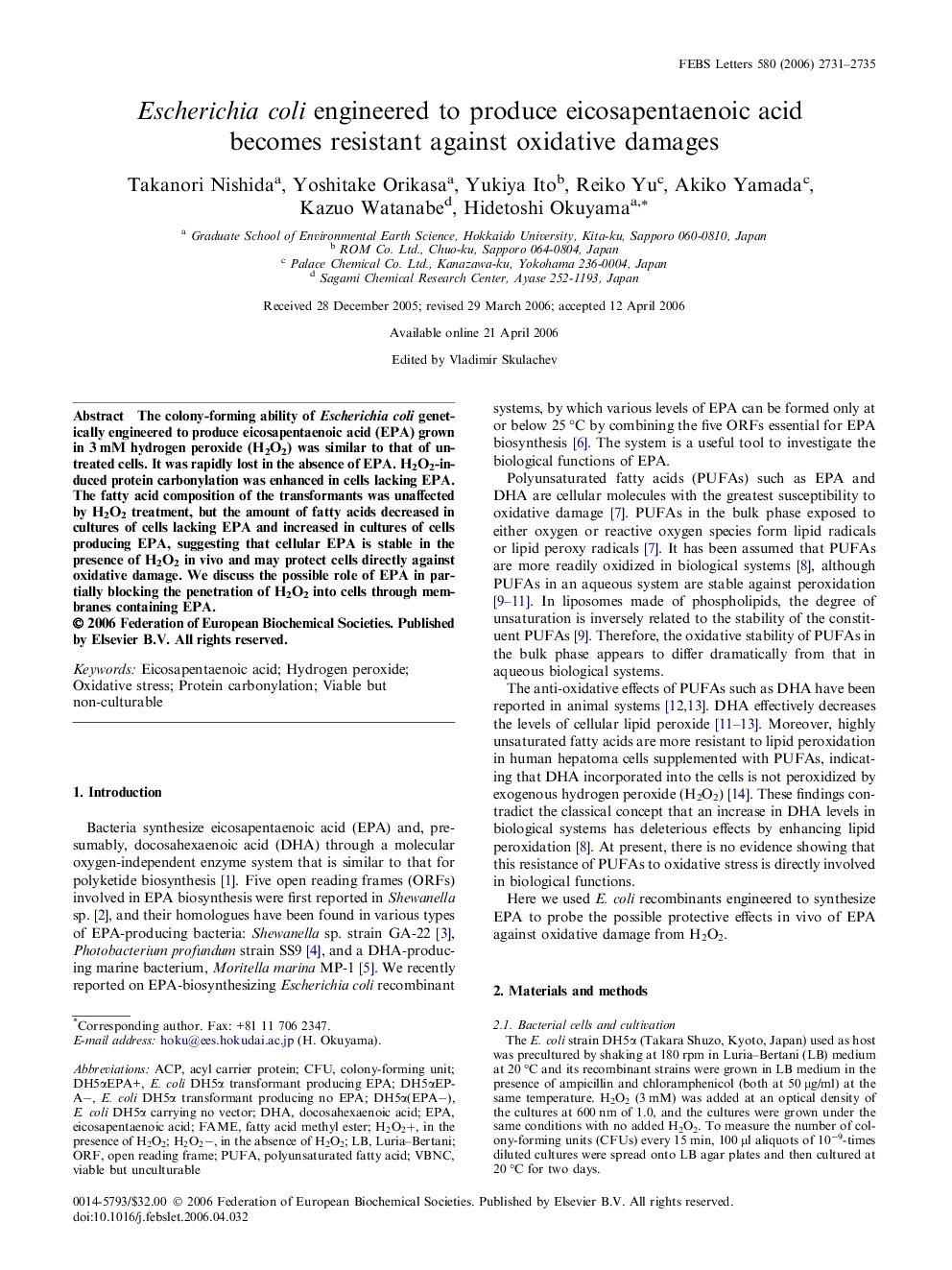| Article ID | Journal | Published Year | Pages | File Type |
|---|---|---|---|---|
| 2052897 | FEBS Letters | 2006 | 5 Pages |
The colony-forming ability of Escherichia coli genetically engineered to produce eicosapentaenoic acid (EPA) grown in 3 mM hydrogen peroxide (H2O2) was similar to that of untreated cells. It was rapidly lost in the absence of EPA. H2O2-induced protein carbonylation was enhanced in cells lacking EPA. The fatty acid composition of the transformants was unaffected by H2O2 treatment, but the amount of fatty acids decreased in cultures of cells lacking EPA and increased in cultures of cells producing EPA, suggesting that cellular EPA is stable in the presence of H2O2 in vivo and may protect cells directly against oxidative damage. We discuss the possible role of EPA in partially blocking the penetration of H2O2 into cells through membranes containing EPA.
